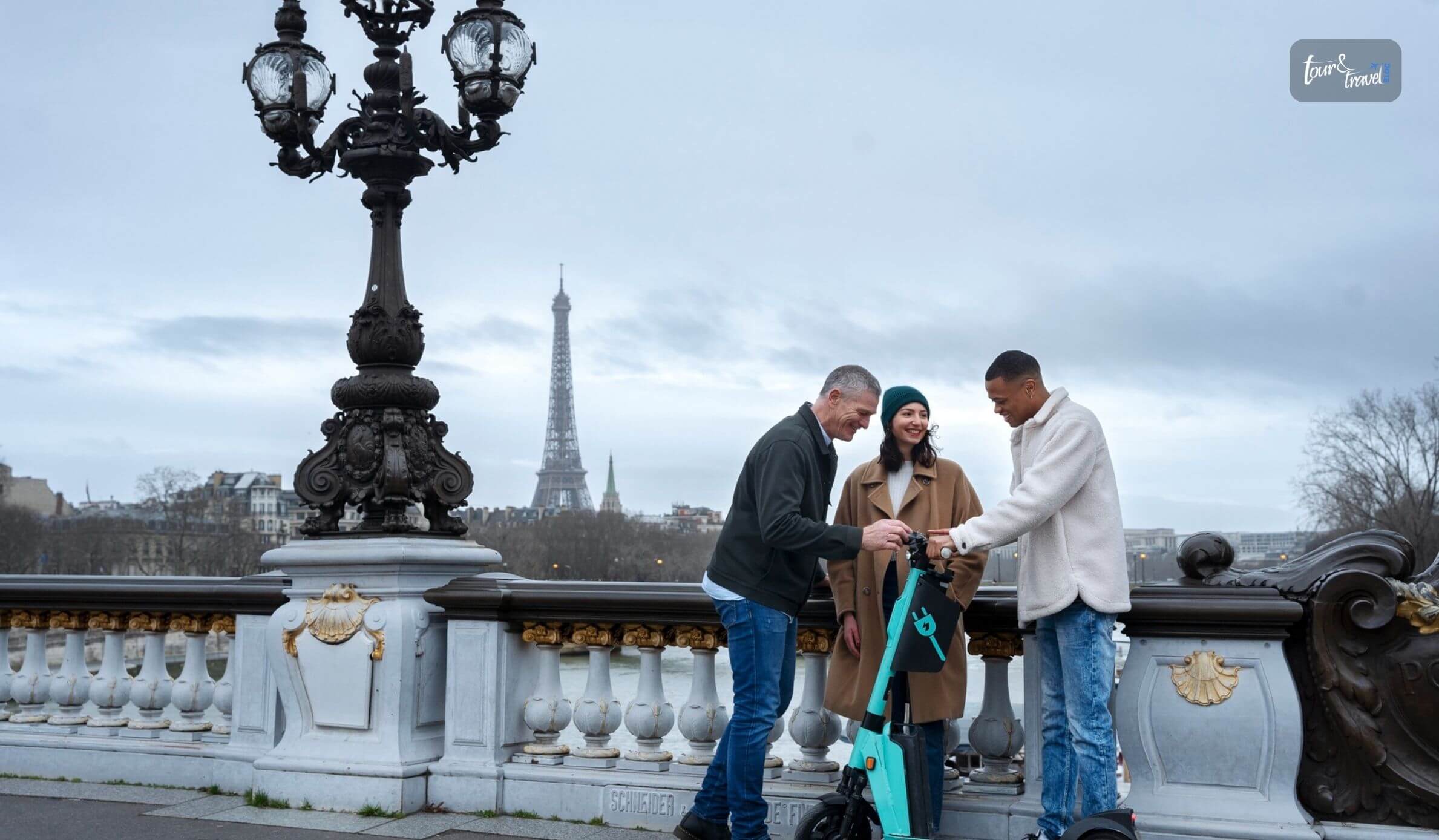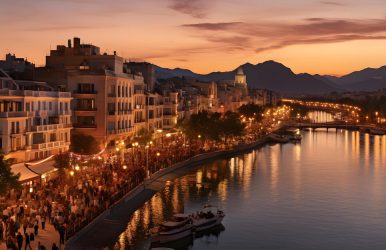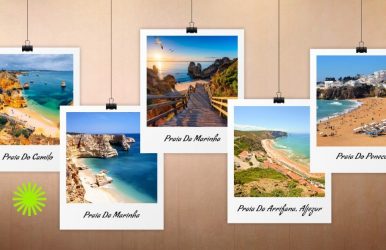11+ Best Beaches In Portugal That You Must Visit Once In Your Life
BY
Barsha
Sep 24, 2025
The Algarve region in Portugal is home to some of Europe's best beaches - especially if you love to swim and go on epic hikes!
It took us only three hours to reach Lisbon. I’ll suggest renting a car and driving to the Algarve because that is the only way you will be able to explore the beautiful coastline. Moreover, parking here is pretty convenient. As a result, exploring the best beaches in Portugal was the perfect road trip.
On that note, I’ve tried listing down the best beaches in Portugal. My parameters? Well, I’ve got quite a few - check them out before jumping down to my list of Portugal’s best beaches!
Does the beach come with a long coastline and a great view?
Is the water good for swimming?
What activities can you try?
How’s the sand?
Is there a restaurant to dine at? Does the restaurant offer takeaway?
How’s the parking?
Can you rent umbrellas and chairs?
Is there anything unique or rare about the beach?
Stay tuned.
13 Best Beaches In Portugal:
Keeping my parameters, let’s check out the best beaches in Portugal:
1. Centeanes Beach/Praia Do Vale Centeanes:
Before I visited Portugal's beaches, I had no idea about the seaweed phenomenon here. Some beaches are home to so much seaweed (called Saguaro Seaweed) that you will only find small pockets with open water for swimming.
In contrast, Praia Do Vale Centeanes is perhaps one of the only beaches I found in Algarve that was entirely free from seaweed - the only beach that welcomed us with clear water and golden sand.
Surprisingly, we stumbled upon this beautiful beach on the same day we visited the iconic Seven Hanging Valleys Trail. And the next day, we were back!
While you are here, you can visit the O Stop Restaurant overlooking the golden sand for a perfect dinner by the beach. I remember we had ordered a bottle of wine and some fried fish on the side. Also, you will find parking easily behind this restaurant - and that is one more reason to definitely check this beach out.
How Much Will It Cost You?
So, visiting the beach will not cost you anything. Also, parking is free here, so no expenses for that as well. However, if you go on boat tours, it usually starts from $25 - of course, the pricing varies depending on the duration and type of boat you opt for. Also, rentals on the beach come for affordable rates but vary a lot.
2. Praia Da Marinha:
While my favorite beach is definitely Centeanes Beach in the Algarve region, there is no competition to the view you get from Praia Da Marinha. For me, it was one of the iconic spots for a breathless view.
And once you are here, you will know why this stunning view is so famous, making Praia Da Marinha one of the best beaches in Portugal - and the world (I’m not kidding)! Moreover, there is a huge parking lot right above the beach, making it one of the most convenient places to spend time.
How Much Will It Cost You?
Again, access to the beach comes for free. Plus, parking is free here, but it has limited spots (32 free spots when we went) and fills up very fast.
Coming to costs, kayaking starts at $35, and boat tours start at $24. Moreover, private boat tours are somewhat expensive - it will cost you around $294. Of course, the rates vary depending on the duration and the type of tour.
Additionally, if you want to go for the famous Seven Hanging Valleys hike, then it will cost you around $42.
3. Rafael Beach, Albufeira/Praia De São Rafael:
This small and sandy beach is great for reading under an umbrella and a few chairs for a day - it’s a very short drive from the town of Albufeira. I stayed here for a day with my partner, and it was a beautiful day!
The best part? The cove has calm waters - perfect to swim in, and you can even hunt for pink seashells. Right above Rafael Beach, you will find Restaurante da Praia de São Rafael. I recommend going here for a full-blown meal if you get hungry - the restaurant overlooks the water and beach.
I had ordered several Spritzes to go while I was here - it kept us hydrated and somewhat tipsy! Also, I loved how the parking lot is not very far from the beach.
How Much Will It Cost You?
Access to the beach is free, like most beaches on the list. Also, parking is free, but there are only two free spots that fill up pretty fast. We had parked on the street for free when we were here, but this area also fills up very fast during peak season.
To explore hidden beaches and caves in this area, you can rent kayaks from Albufeira Surf SUP - single kayaks will cost you $18/hour, and double kayaks will cost you $36.
4. Pirate Beach/Praia Dos Paradinha:
View this post on Instagram A post shared by Simon Bob (@simonbob_)
Pirate Beach is pretty underrated - so much so that you will probably miss it out (now, you won’t!) Just beside the beautiful Praia São Rafael, you will find this underrated gem. I found the beach has rock formations that are super cool - in fact, these appeared to be very interactive.
Then, you will spot mazes created by rock towers in the sand and caves in the far side of the beach - the best part? You can walk through the mazes and caves.
While you are exploring the rock formations on Pirate Beach, don’t forget to pause for some time and look closely around you. You will come across an endless number of fossils and seashells embedded in the rocks. I also found a lush (albeit small) waterfall tucked away right behind the cliff.
How Much Will It Cost You?
Access to the beach is free. But parking is not always free here, especially during peak tourist seasons. Since we stayed in Albufeira, this beach wasn’t that far - only 6.1 kilometers from the town. It took us 12 minutes to reach via Uber - we paid the Uber $33.
For an underrated beach, kayak tours for exploring caves were somewhat expensive, costing around $45 per adult.
5. Point Of Mercy/Ponta Do Piedade:
Ponta Do Piedade is not really a beach - it’s more like a cove. But this place has such a beautiful view that it would be a crime not to write about it. Plus, it's not very far from Lagos, the center - only a few minutes, TBH.
I had a great time exploring this area - on a kayak with my partner! You can also opt for a paddleboard or a boat, since there are many tours available here. Also, you can consider going on grotto tours via boats running from the grotto’s center. I didn’t opt for this tour because the grotto was 200 steps away.
I don’t mind going downstairs - but coming up? That is very exhausting.
How Much Will It Cost You?
Like most beaches on this list, access to Point of Mercy is free. However, if you want to explore the sea caves and grottos, you can go on boat tours. It will cost you between $24 and $30 for a 75-minute to 120-minute boat tour.
Also, if you go kayaking (like we did), then you will have to shell out a little bit more. Guided kayak tours here will cost you $47 for a two-hour tour.
6. Camilo Beach/Praia Do Camilo:
While Praia Da Marinha has the best view (without any competition), Camilo Beach comes a close second when it comes to iconic views.
Naturally, thanks to the stunning views, you can expect the area to get crowded on busy days. In spite of the crowds, I could spend time with my partner relaxing and having a fantastic day.
You can go swimming or just lie on the soft sand. Also, I want to mention how we found the calmest water in Camilo Beach - the calmest in the Algarve region.
You will see that the beach has been divided into two different sections. On the left, you will see a cave - walk through it and you will find another cove. And trust me, this one is better than the other cover outside.
Having said that, I was really annoyed with the 200 or so steps we had to take just to reach this beach - but in the end, the view made it worth the physical exhaustion.
How Much Will It Cost You?
Access to the beach is free, and the parking is free as well, but then again, there are only limited free spots available. In case you want to avoid dealing with parking issues, you can choose to walk - it’s a 5 to 10-minute walk from Lagos.
While it might seem expensive, think about the amount of money you spend on recreational purposes at any given time.
For instance, I bought this percolator bong with my disposable income, and while it doesn’t serve me a purpose every day, it makes me happy on the days I use it.
Similarly, you can look at travel money as something that might not add value to your life every day, but it is certainly worth every penny when you think about it.
7. Praia Do Carvoeiro, Carveiro:
Carvoeiro is a small fishing village that we had visited primarily because I am obsessed with fish (sorry, I love to eat fish and see how fish farming works)! At the heart of this fishing village, we found the picturesque beach of Praia Do Carvoeiro.
Surrounded by whitewashed houses and golden limestone cliffs, Praia Do Carvoeiro offers a postcard-like setting.
This sandy beach is beautiful and is known for boat tours to the well-known Benagil Cave. Apart from this beach, Carveiro is a charming village - so many cafés, restaurants, and shops. Also, definitely stop by the coastline and check out the Carvoeiro Boardwalk for the best views.
How Much Will It Cost You?
Access to the beach is obviously free. For rentals like umbrellas and sunbeds, it will cost you $36 for two. During peak summer months, costs for rentals can go up to $40.
Also, boat tours start at $42 - you can go for a two-hour-long Benagil & Marinha tour, or you can also go for the Benagil Long Boat tour.
8. Praia De Benagil:
Only a while ago, I had mentioned the world-famous Benagil Cave - one of the most famous sea caves in the world.
The cave is home to natural sunlight and a stunning dome-shaped roof - you can access the cave by kayak, paddleboard, or boat. This time, we decided to go on a boat tour, ditching kayaking in the process.
And you cannot miss out on this spot - while you are here, you should definitely visit Benagil village.
Close to this village, we found a small beach, Praia De Benagil, protected from the world and tucked away behind towering cliffs. You can easily access the beach by car - plus, you will find nearby parking as well.
How Much Will It Cost You?
You can access this beach for free. However, to visit the popular Benagil Cave from this beach, you can opt for guided boat tours - it will cost you between $24 and $59. Moreover, you can rent equipment (SUP/kayak) from here - it will cost you $48. Also, guided kayak tours are available, ranging from $41 to $59 for an adult.
9. Praia Do Peneco, Albufeira Old Town:
Algarve’s top party destination is hands down Albufeira. So, if you are planning a night of debauchery and staying out late, then you have to spend a weekend in Albufeira!
While we were here, we were super lucky - out of the two days I spent in this town with my boyfriend, I stumbled upon a crazy music festival on the beach! The next day, we visited the old town and parked outside just so that we could walk around.
While you are here, definitely check out Café Mané for some delicious breakfast and great coffee. I will also recommend Alfredo's if you love Italian food - this diner is super cozy and serves delicious food.
How Much Will It Cost You?
The beach has free access, so there’s no cost to enter and access the beach. Parking is not free, and rates tend to vary during busy seasons. We had taken a taxi from Albufeira, and it cost us $10, which makes this commute alternative fast and convenient.
10. Falesia Beach/Praia Da Falesia:
I loved Falesia - it was the Algarve’s longest beach with an uninterrupted coastline that goes for miles. We rented an umbrella (you can bring your own umbrella too) and spent time being lazy on the sand.
Also, the beach is home to deep orange and red cliffs - something we had not seen before in this region. Moreover, if you get hungry, then you can check out the restaurant perched above the cliff - you can sit here for a meal or get some drinks and snacks on the go.
How Much Will It Cost You?
Access to the beach is free. Of course, you can rent umbrellas and sunbeds at different spots on the beach, especially close to Vilamoura - this place is home to several fun beach clubs.
Also, you can go on various tours from this beach. The cave and dolphin tours will cost you somewhere between $49 and $55. Then, luxury boat tours will cost you $61, while paddleboarding is priced between $38 and $43.
11. Carvalho Beach/Praia Do Carvalho:
Carvalho is a cozy, small cove, hidden between cliffs. I’ll tell you why it's one of the best beaches in Portugal. You can’t access this beach with a vehicle - you have to walk down stairs that have been carved into the stone, literally through a tiny cave.
Unlike most people who love lying under the sun, I am not a big fan of getting tanned - and this is precisely why I loved this beach so much. Most parts of the beach are free from the sun, but for people who like lying in the sun, there is a big rock peninsula.
However, we had ordered food from O Carcaca Truck located above the beach - it was terrible. So, avoid this food truck when you are here.
How Much Will It Cost You?
There’s no entry fee for entering Praia Do Carvalho - yep, you can access the beach for free. The problem is dealing with parking - parking is usually free with limited spots, but during peak months, you have to pay to park your car.
12. Burgao Beach/Praia Do Burgao:
View this post on Instagram A post shared by Visit Portugal (@visitportugal)
The Algarve is home to another charming fishing village, Burgau. We fell in love with the blue-accented, white-washed buildings - it was like stepping into a movie. Moreover, my boyfriend and I are not fans of crowds, and Burgao was exactly that - free from crowds!
The village and the nearby beach have a tranquil, calm vibe. Also, there are so many cute cafes and restaurants.
If you have time, spend time at Love Burgau, a lovely bar and cafe - you have to eat their specialty sourdough pizza. It was absolutely delicious - the best pizza I have had in months!
How Much Will It Cost You?
Access to the beach is free. However, the beachside parking has limited spots - so, arrive early if you want to avoid paying for parking.
Once the beachside parking fills up, people have to park in the surrounding areas and pay rates that vary locally regularly. We spent time relaxing in the comforting atmosphere - the beach’s natural beauty made us too lazy to explore much.
13. Praia Da Arrifana, Aljezur:
The West Algarve is somewhat different from the rest of the region - the beaches certainly have a different vibe. Moreover, the area is actually even known as the California of Europe - and rightly so.
We drove to the western Algarve directly from Lisbon - and it certainly felt like a true Californian beach town! The crispy air, the agave, the cactus, the salty small - all felt like Southern California. Once we reached, we decided to stay in Aljezur, a town popular for its surfing culture and rugged beauty.
The largest beach near this town is Praia da Arrifana - and it’s a must-visit! Also, if you visit the beach, don’t forget to check out Cal Arrifana Restaurant. We really liked the food at this laid-back restaurant. Moreover, we visited a few places in Aljezur (because we love eating) - and our favorite was a yummy dinner at Tamrab Thai.
How Much Will It Cost You?
Again, like all beaches on this list, access to this gorgeous place is free, but parking here is not free - the rates vary locally. However, we didn’t take our car - we had taken a taxi, instead. Yep, taxis will cost you between $16 and $22, depending on your location in the Aljezur area. Also, public buses and shuttles are your other commute alternatives.
Are Beaches In Portugal Safe?
The best beaches in Portugal are safe, with available lifeguards during peak months and warning flags; safety is not an issue on these beaches. Having said that, it is vital to understand that your safety is always in your hands - you should be responsible, thanks to unpredictable dangers such as rip currents, falling rocks, jellyfish stings, and Atlantic currents.
On this note, remember to follow warning flags and local advice, since drowning incidents are not uncommon here. Also, the authorities can fine you for not following the rules.
Frequently Asked Questions:
Check out the most frequently asked questions about the best beaches in Portugal:
1. Which Part Of Portugal Has The Best Beaches? Portugal is home to some of the world’s best beaches. So, if you are looking for beautiful, sandy beaches in this country, then you have to explore the Algarve region. I was here for a whole month exploring the popular and underrated beaches - and the Atlantic has never looked more beautiful. 2. Where Is The Warmest Beach Water In Portugal? Praia da Barreta is the beach with the warmest water in Portugal. Yep! Located in Faro’s Deserta Island, this beach experiences average temperatures that range between 20°C and 24°C. While most beaches in the Algarve region buzz with crowds and activity, Praia da Barreta practically remains a deserted beach, albeit a tranquil one. 3. Are There Any Sandy Beaches In Portugal? Yes. Portugal is home to several long and sandy beaches, perfect for families. I’ve listed several beaches in my blog that have endless sand areas like Praia Do Vale Centeanes, Rafael Beach, and Praia Da Falesia. 4. What Is The Most Photographed Beach In Portugal? Praia da Marinha is the most photographed beach in Portugal - at least as per my Instagram feed and Google’s AI Overview. And once I reached here, I realized why - it is one of the most iconic beaches in Portugal, thanks to its golden sand, miles of coastline, and breathtaking view. 5. What Is The Most Beautiful Beach Town In Portugal? The most beautiful beach towns in Portugal are Albufeira, Lagos, and Tavira in the Algarve region. Also, you will find some beautiful and charming beach towns near Lisbon and the central coast, such as Sesimbra, Cascais, and Ericeira.
Read Also:
Beaches In Spain: Playing Important Roles In Leisure And Beach Tourism In The Country
9 of the Best Beaches in Perth that You Must Visit
Uluwatu Beach: The Prettiest Beach In Bali















